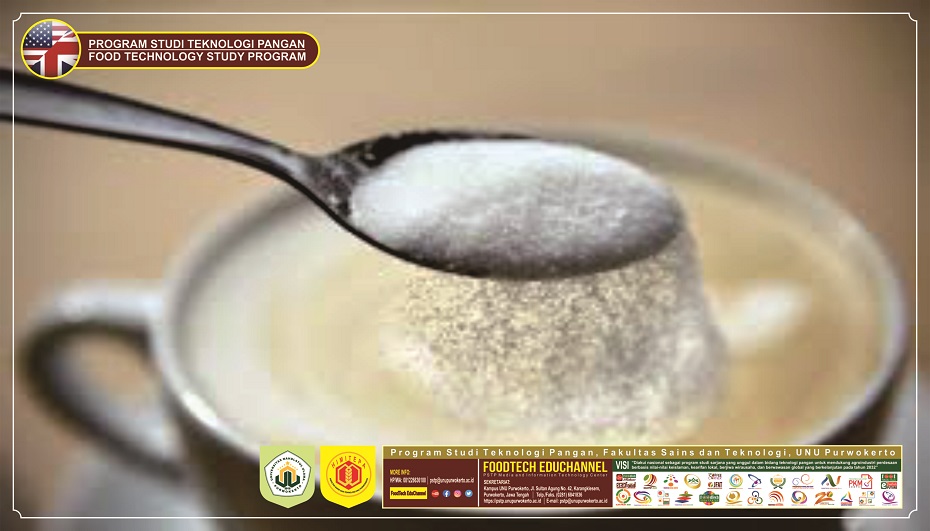
HalalFood-Food Technology: Introducing the Critical Point of Halality Sweeters and Emulsifiers,
Halal-SDGs Foodtech Future – The food industry has grown very rapidly. Currently, food is no longer just boiled, steamed, and fried, but is also processed with various raw materials (ingredients). To improve the quality, appearance, shelf life, taste, and aroma, food product processing practitioners use raw materials (main) and food additives (BTP), such as: flavoring, sweetener, emulsifier, developer, colorant, coating, softener, prevent clumping (anti-caking agent), and others. The ingredients added are sometimes not just one kind, but a combination of various ingredients. As Muslim consumers, we should understand the halal status of ingredients used in making various food and beverage products. To be more secure, we should only use ingredients that have a clear halal status. This was added by Kavadya Syska, Coordinator of the Food Technology Study Program, Faculty of Science and Technology, University of Nahdlatul Ulama Purwokerto who is also the initiator of the Halal Food Center, UNU Purwokerto.
The Critical Point of Sweetener Halal
There are two kinds of sweeteners that are often used in the food industry, namely synthetic sweeteners and natural sweeteners. Non-calorie synthetic sweeteners, such as: sodium cyclamate (Na-Cyclamate), sodium saccharin (Na-Saccharine), and aspartame, are generally kosher. However, sorbitol is doubtful because this product is made from glucose which is in doubt. On an industrial scale, glucose can be made enzymatically using an alpha-amylase enzyme catalyst. This enzyme can come from microorganisms or from the digestive tract of animals (saliva and pancreas). Therefore, glucose syrup that is not halal-certified has the status of doubtful.
There are also several kinds of natural sweeteners. Generally, brown sugar and palm sugar are safe for consumption. Precisely granulated sugar that we have not been aware of can have the status of doubtful. Halal sugar is questioned because the compound that is often used as a whitening agent is activated charcoal (carbon). Activated charcoal is sometimes also used as a water filter. This activated charcoal can come from mining materials (mine), from plant wood charcoal (charcoal), or from animal bones (bone). Pork bone charcoal is allegedly widely available in the market.
Emulsifier Critical Point of Halal
Emulsifiers are ingredients added to food dough which are intended so that raw materials with high fat content can be mixed with water evenly (homogeneous) and stable for a long time. Because it can function to stabilize the mixture, it is often used as a stabilizer.
The halal status of the emulsifier depends on the compound used, for example: lecithin (lechitin). Lecithin is a phospholipid compound derived from fat, of course it can be animal fat or vegetable fat. If it comes from animal fat, the halal status of the animal must be ensured.
Lecithin can also be extracted from plant materials, such as: soybean seeds (soy / soya lechitin). Soy lecithin is halal if the production process does not use prohibited ingredients. If the hydrolysis of fat uses an enzyme that is forbidden, then of course this soy lecithin becomes haram.
On an industrial scale, soy lecithin is extracted using organic solvents. After the material is extracted, then the solvent is removed to obtain a crude extract of lecithin. In order to obtain better lecithin yields, lecithin derivatives were made using an enzymatic process. If this process uses the enzyme phospholipase A from pig pancreas, then this vegetable lecithin is haram.
Sources: interviews and references analysis
Food Technology, UNU Purwokerto: Creative, Innovative, Fantastic
Food Technology, UNU Purwokerto: Developing Creative and Innovative Future



